The transcription factor Zbtb32 controls the proliferative burst of virus-specific natural killer cells responding to infection
- PMID: 24747678
- PMCID: PMC4404304
- DOI: 10.1038/ni.2876
The transcription factor Zbtb32 controls the proliferative burst of virus-specific natural killer cells responding to infection
Abstract
Natural killer (NK) cells are innate lymphocytes that exhibit many features of adaptive immunity, including clonal proliferation and long-lived memory. Here we demonstrate that the BTB-ZF transcription factor Zbtb32 (also known as ROG, FAZF, TZFP and PLZP) was essential for the proliferative burst and protective capacity of virus-specific NK cells. Signals from proinflammatory cytokines were both necessary and sufficient to induce high expression of Zbtb32 in NK cells. Zbtb32 facilitated NK cell proliferation during infection by antagonizing the anti-proliferative factor Blimp-1 (Prdm1). Our data support a model in which Zbtb32 acts as a cellular 'hub' through which proinflammatory signals instruct a 'proliferation-permissive' state in NK cells, thereby allowing their prolific expansion in response to viral infection.
Figures
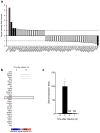

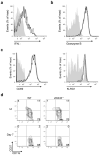
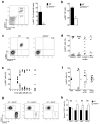
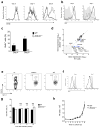
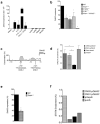
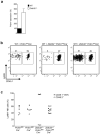
Comment in
-
A ROG(ue) in charge of the (natural) killers.Nat Immunol. 2014 Jun;15(6):531-2. doi: 10.1038/ni.2895. Nat Immunol. 2014. PMID: 24840990 No abstract available.
References
-
- Arase H, Mocarski ES, Campbell AE, Hill AB, Lanier LL. Direct recognition of cytomegalovirus by activating and inhibitory NK cell receptors. Science. 2002;296:1323–1326. - PubMed
-
- Brown MG, et al. Vital involvement of a natural killer cell activation receptor in resistance to viral infection. Science. 2001;292:934–937. - PubMed
Publication types
MeSH terms
Substances
Associated data
- Actions
Grants and funding
LinkOut - more resources
Full Text Sources
Other Literature Sources
Molecular Biology Databases

